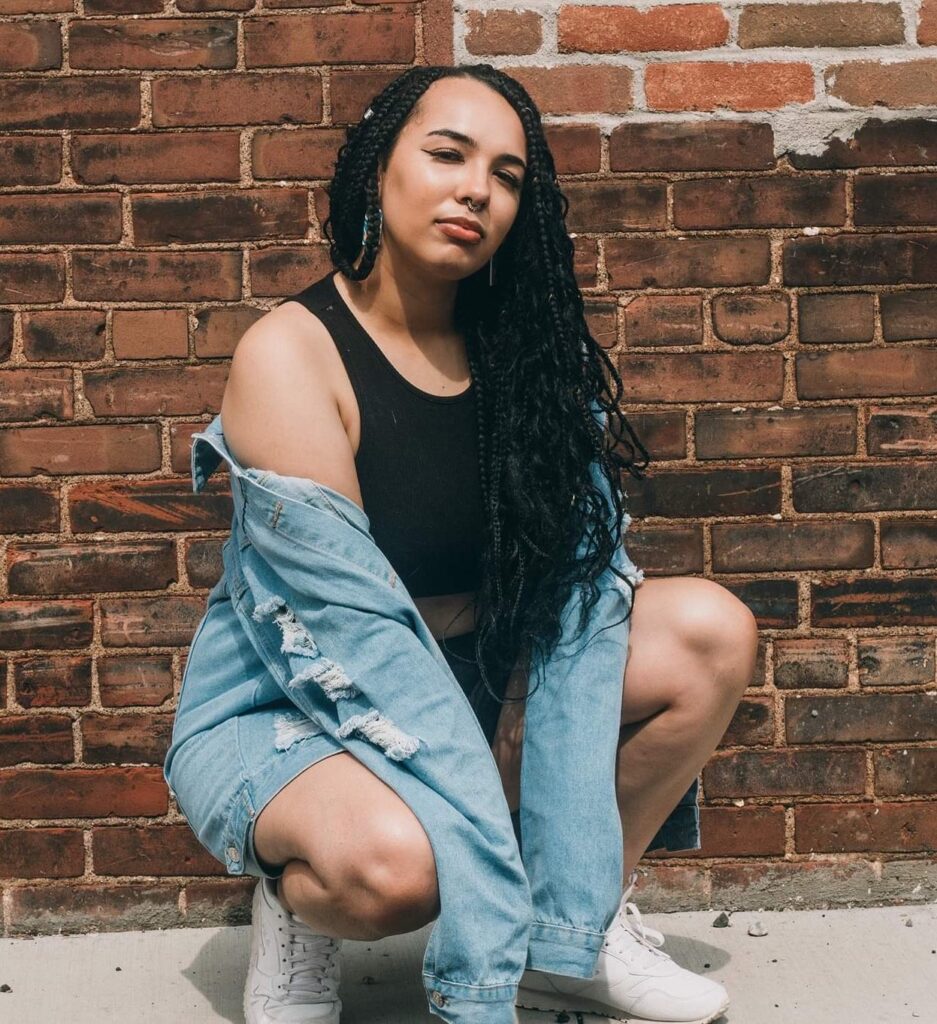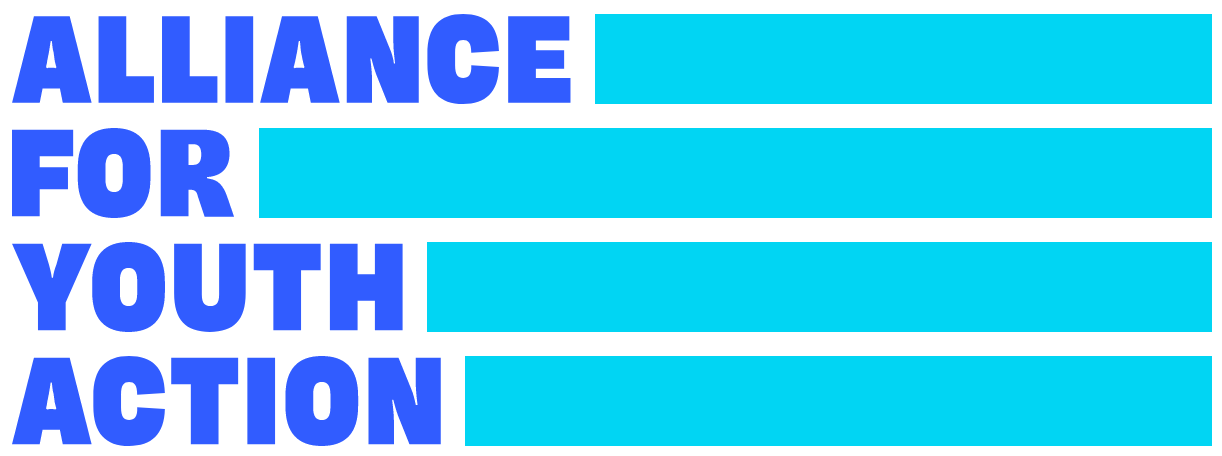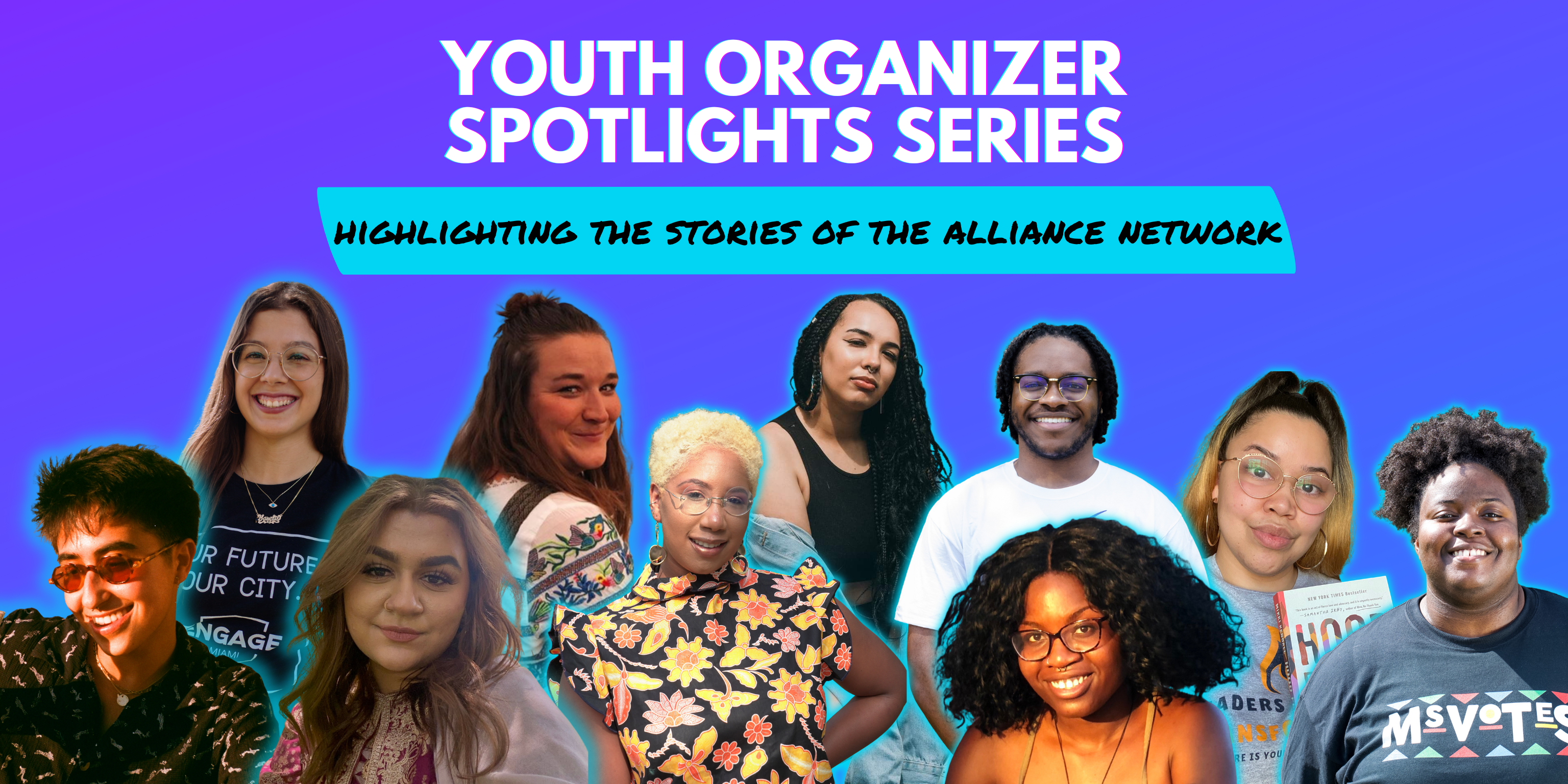The Youth Organizer Spotlights is a digital storytelling project that focuses on the individual narratives of youth organizers who drive the collective local organizing power in the Alliance Network. This series is ongoing and will be featured on our social channels, in our email program, and through regular updates to this blog post.
The Alliance Network’s Hometown Heroes
There are hundreds of youth organizers in the Alliance Network fighting to build a better future for their communities. And for many of them, those communities are where they grew up! There is something so special about the folks who choose to invest their time and talent back into the community they were raised in. For this iteration of our Youth Organizer Spotlight Series, we are shining a light on some really special youth organizers who are building a brighter future in their hometowns.
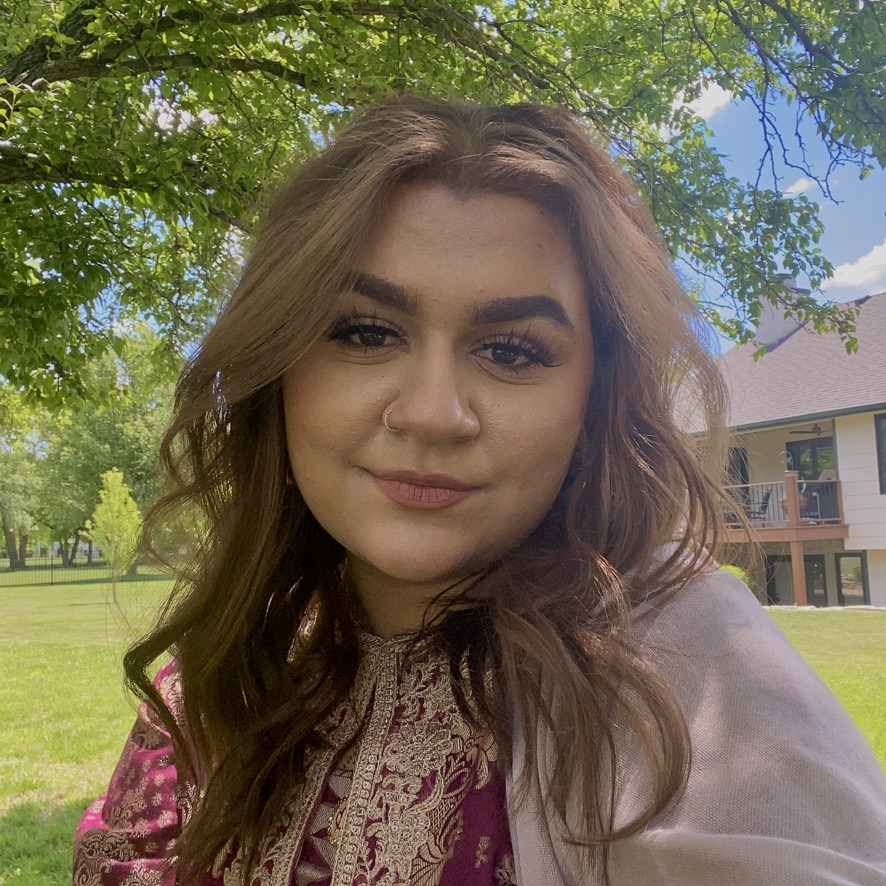
Rija Nazir
she/her/hers | Wichita, KS
What has motivated you to do this work specifically in the community you were raised in?
As someone who has been involved in Kansas politics since I was 16, I felt an obligation to put my political knowledge to power during this primary election. When it comes to marginalized Wichitans, they are seldom given the opportunity to learn about upcoming elections and elected officials, let alone ballot measures. Vote Neigh truly allowed young, Black and Brown Kansans to learn and go out to have their voices heard despite their elected officials trying to suppress them. As someone who had learned about her city through the lens of Black and Latine communities, I felt as if this campaign was one step towards giving back.
What’s been your proudest organizing moment in your hometown?
My proudest moment was after the Kansas primary election results had been announced. I had received a multitude of messages from young Kansans expressing how the Vote Neigh campaign had helped them in understanding how to vote on the “Value them Both” amendment to the Kansas Constitution. With a state legislature that purposely tried to trick their own constituents into voting for government overreach post-Roe, it is an understatement to say that I was proud of how young people showed up to the polls and overwhelmingly defeated the amendment. I will truly never forget this historic win for our state.
What dream do you have for your hometown?
My dream is for Wichita to firmly stand behind the efforts of young people of color. Some of the most innovative, intelligent, and inspiring people I have ever met are those who have been pushed aside by older generations for solely being young. Even if the goal seems minuscule, supporting young minds can make all the difference.
What is your organizing superpower?
As cliché as it may seem, I’d like to think my organizing superpower is pushing myself out of my comfort zone. I can confidently say I would not be here today if I had not pushed myself to overcome some of my introverted tendencies.
Pari Kemmick
she/her/hers | Billings, MT
What has motivated you to do this work specifically in the community you were raised in?
Billings can be rough around the edges and it can be hard to find your role here, especially as a young person. I had an incredible childhood here, but as I got older and was finishing high school I didn’t see a future for myself here, especially as we saw two tries at passing a citywide nondiscrimination ordinance fail. So like so many of my peers, I left Billings for a while in college and then in my first few years out of school. I worked in various communities with refugee resettlement programs and while I loved that work so much, I always felt something pulling me back to Billings and I’ve come to find that it’s doing this work alongside my community.
I believe so deeply that Billings can and does have so much to offer if we’re willing to work for it. I have gotten to work with so many incredible young people since I have been back and seeing that fire ignite within young people in Billings gives me so much hope for a beautiful, welcoming community that will raise the next generation, like my two year old niece Ophelia; I do this work so that this town will be somewhere she wants to stay and thrive in as she grows up.
What’s been your proudest organizing moment in your hometown?
Gosh, so many incredible moments come to mind. But I would have to say it’s a smaller, less visible moment. I run a fellowship program each season and last summer I had 5 incredible fellows. 2 of them were freshmen in high school who didn’t know each other before the program. At the end of the season, one of them texted me to let me know they were about to be in class together and thanked me over and over for introducing them because, as a queer teenager who isn’t out to very many people, they would finally have someone in class with them that would make them feel seen in a way that hadn’t been before by peers. It still brings me to tears every time I think about both of them and it’s moments like this that truly make this work so valuable and fulfilling.
What dream do you have for your hometown?
I KNOW in my heart that the majority of people in my town want the best for each other and we just have to find the things that connect us all and that make everyone feel safe, seen and heard. I dream of a Billings that is not just safe for, but is celebratory of our queer community. While I know we have a ways to go, I am seeing so many people step up to create safe spaces, events and resources for LGBTQ+ folks here and that gives me a lot of hope. I believe if we can get a non-discrimination ordinance or a welcoming ordinance passed at the city level, we’ll see less young people leaving Billings. I envision a Billings where young people see themselves reflected here and see a future for themselves here and I know we can make that happen.
What is your organizing superpower?
I’d say the power of empathy. I am sensitive to what people are feeling and I use that in my organizing work to make sure everyone feels welcome and comfortable and that everyone we bring into this work knows that they have a role to play. I also feel like I’m pretty good at centering joy wherever I can. This work isn’t always easy when young people feel like there is so much that we are up against, centering joy keeps us moving forward and showing up for each other.
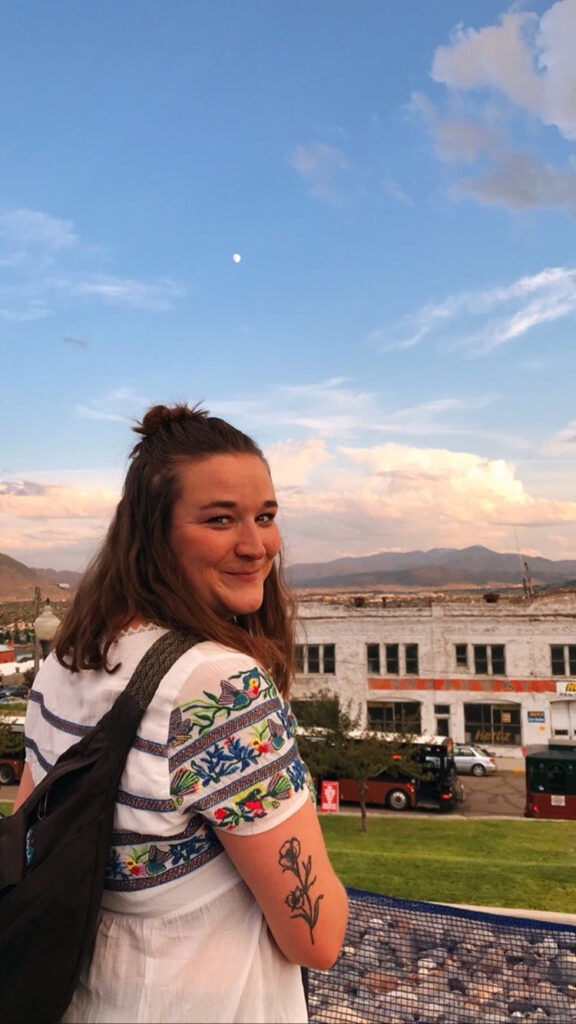
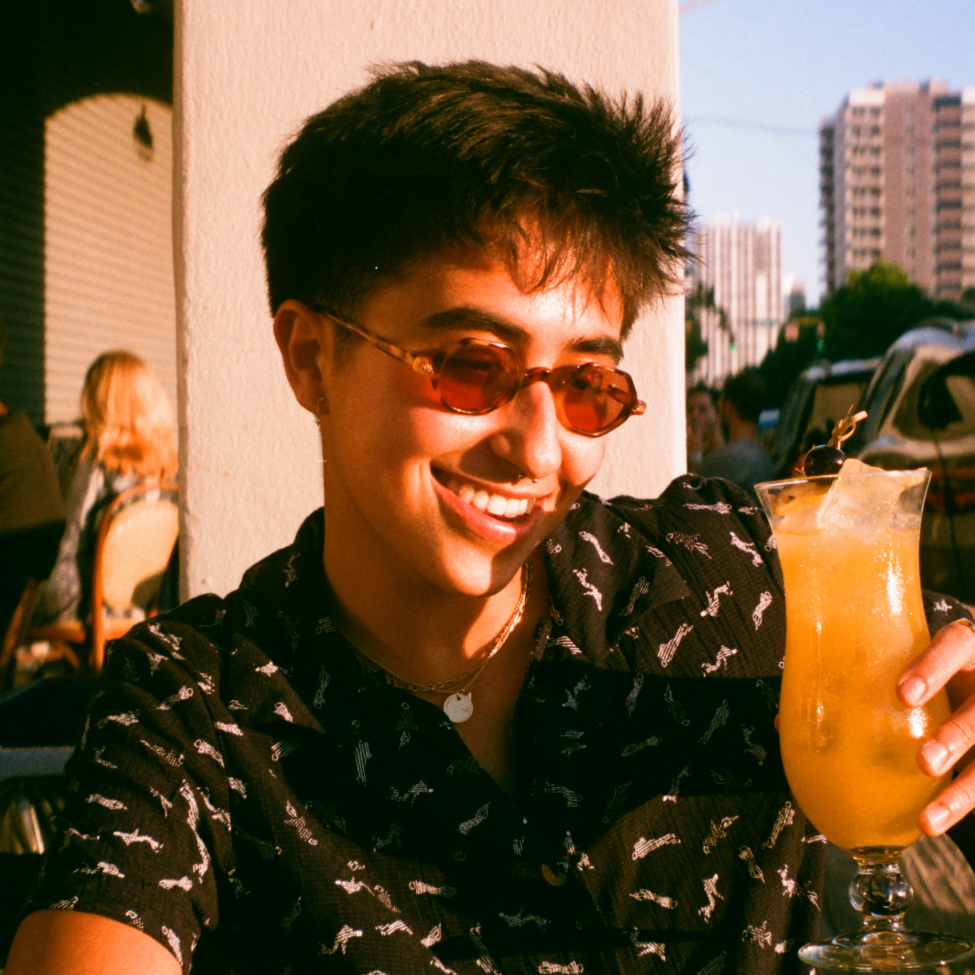
Caro Gutierrez
she/they | Miami, FL
What has motivated you to do this work specifically in the community you were raised in?
I moved to Miami as a kid and have seen it change and grow throughout the years. I moved away for school and realized how much I missed the sense of community that I felt here so I moved back after finishing my studies.The challenges that I saw my parents face in the city affected me and those around me in our everyday struggle to simply survive even years later, but at a more disproportionate level. We’re all from so many different places over here, but our struggle is collective; the city’s been changing rapidly, but leaving its longtime residents behind. I love Miami and want to learn new ways to play an active role in my community in whatever capacity. I hope to be able to see the city grow in a sustainable way and to be part of that as well.
What’s been your proudest organizing moment in your hometown?
2020 propelled me from my couch to the actions during the summertime. I was curious in what way I could lend my skills into organizing and got together with my Chef bestie to put together a fundraising bake sale to raise funds to donate whatever we made to an org that works on assisting Black trans peoples’ rent and affirmative surgeries (For the Gworls). We got really creative with the project and went crazy with the branding, delivered all the food ourselves in one day, came up with a menu and tested recipes/prepped pounds of ingredients and ended up raising twice as much as we’d hoped for. I’d love to do something like that again, it showed me organizing has many different shapes. Seeing people my age get involved inspired me to do the same.
What dream do you have for your hometown?
I hope to see Miami prioritize its residents instead of outside investors and developers. It gets flooded when it rains and we are susceptible to all sorts of environmental disasters but see little action on our local government’s end to address that instead of continuing to guzzle money out for luxury housing, and so much more. I’m tired of that, and I know that that sentiment is echoed by so many others here. So I’d like to see a community where we all actively learn how to play a role in protecting everybody, not just those with funds and power. I imagine a completely different way of life, one we can create together. I know those my age trying to make it out in this city feel the same way, so I hope to learn and organize along with peers my age who are tired of accepting that things have to be the way that they currently are.
What is your organizing superpower?
To be determined… right now it seems to be making dark jokes and internet references to deal with the social issues plaguing our society. My coworkers seem to dig that. Trying to figure out ways to get those around me engaged and informed in easy and accessible ways might just be it!
Yanelis Valdes
she/her/hers | Miami, FL
What has motivated you to do this work specifically in the community you were raised in?
I’m from Hialeah—a predominantly Cuban and Cuban-American area in northwest Miami-Dade County. I grew up experiencing my culture and language reflected in school, in grocery stores, on local news channels, in city hall. Yet, I also grew up feeling disconnected from other neighborhoods across Miami-Dade. I grew up without a real understanding of how our local government works in South Florida, while hearing the same last names for our mayors, city council, and county commissioners. And although I felt represented where I grew up, I really struggled with the conservative values that I later realized drove our politics and decisions on how to govern and shape Hialeah and Miami. I grew up feeling like there was little opportunity to thrive where I call home.
I left South Florida when I turned 18 and was gone for nearly eight years. I lived in Washington, DC for some time and I got involved in community organizing after the 2016 election. The deeper I got into U.S. politics and learning about social justice movements, the more I began realizing that so many of the reasons I felt that I couldn’t thrive in Miami were because of conditions that we have the power to change as a community. I finally decided to come home and help build a Miami that really values and cares for us and our future.
What’s been your proudest organizing moment in your hometown?
I spoke at a public hearing for the first time in 2019, just a few months after moving back home—thanks to Engage Miami. I struggled with finding housing and the cost of living when I came back to Miami; I channeled that and shared my story with our county commissioners to ask for more investment in affordable housing in our county budget. That experience fired me up for the 2020-2021 budget cycle the following year. I remembered how intimidated I was to walk up to the podium and speak, so I planned a prep session and helped mobilize hundreds of young people to the virtual budget hearings that happened in the wake of COVID and the murder of George Floyd by police. People shared incredibly moving stories and called for divestment in systems that harm us and investment in services that heal us: increased mental health services, housing relief, a sobering center, violence prevention programs, community IDs, and more.
What dream do you have for your hometown?
I have a lot of dreams for Miami-Dade. But ultimately, I want a future where every resident has their needs met and their future invested in. This means everyone is housed in affordable, decent, comfortable homes that are protected from the effects of climate change and exploitation from developers. This means we implement innovative solutions to mitigate the climate crisis and create resilient infrastructure and systems that are rooted in racial and economic justice. This means we no longer rely on the carceral system and instead invest in mental health services, community centers, and alternatives to incarceration. I dream of a Miami where we deeply value the importance of community and are truly interconnected— through transit, culture, and the solutions to our collective struggles.
What is your organizing superpower?
Learning and reflection. I’m really big on creating spaces where we are all learning together—whether it’s how to read a budget or understand what redistricting is. So much information that is critical for us to effectively organize is (purposely) inaccessible and when community members realize that, it makes learning less intimidating and makes room for questions and dialogue. I also really appreciate feedback sessions with our members because it allows us to meet people where they’re at and helps us be better organizers.
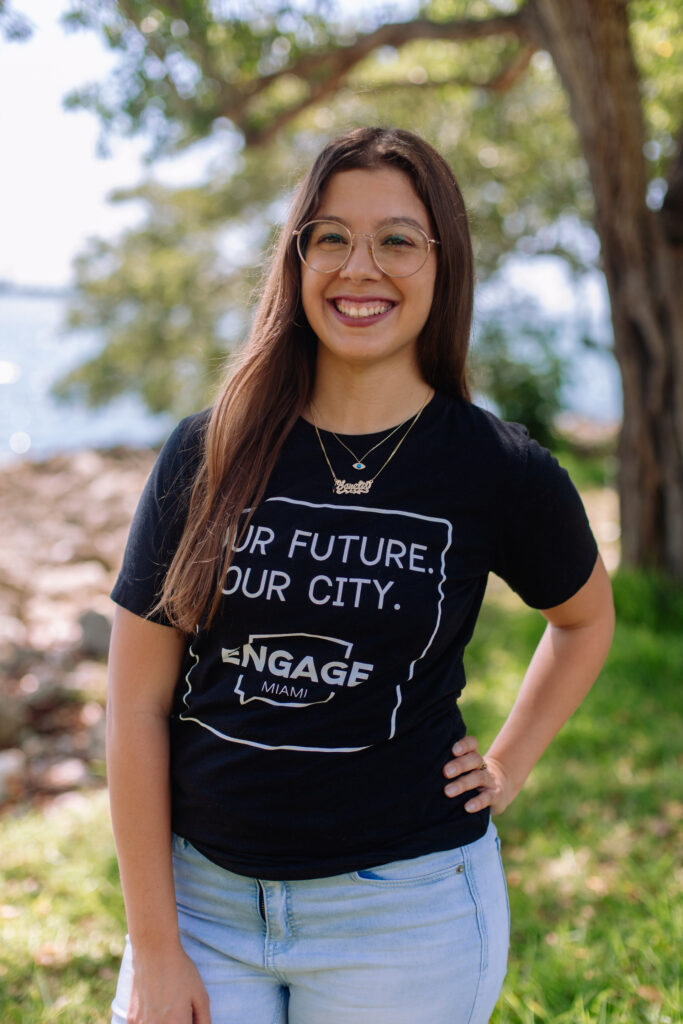
Meet Alliance Rural Organizers
59.3 million people live in rural areas, including youth voters. Youth voters in rural areas are more likely to face barriers to casting their ballot by mail or have to travel further to their polling location. We talked to Alliance organizers working in rural areas of Mississippi and Wisconsin to tackle common misconceptions around organizing rural youth, and how it may differ from working in urban areas.
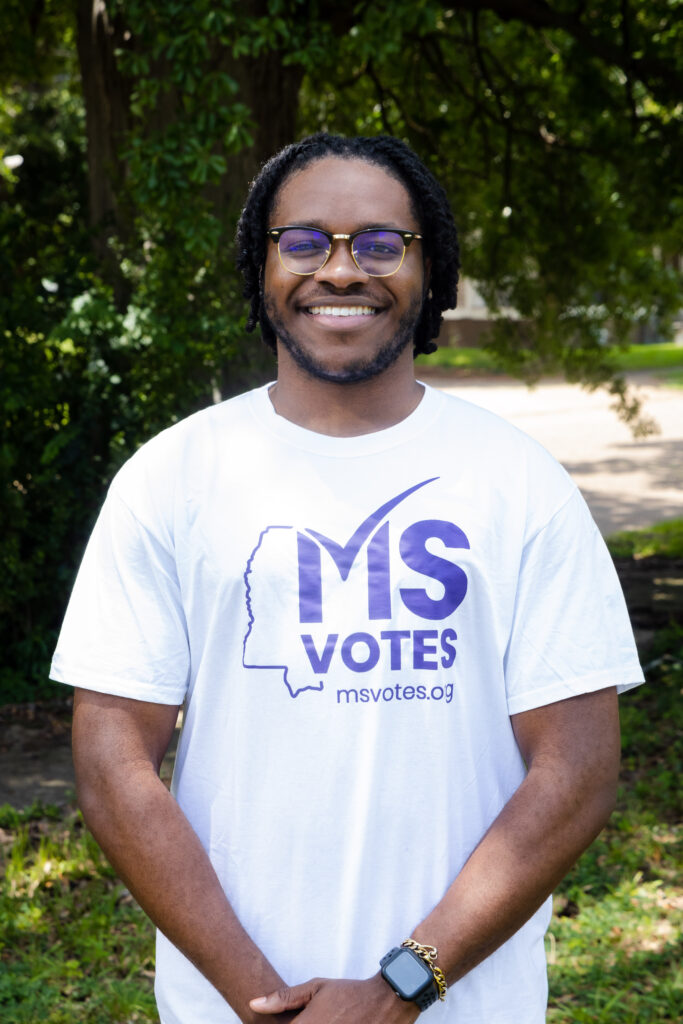
Jarrius Adams
he/him/his | Research Associate | Mississippi Votes
What do people need to understand about rural organizing and rural youth?
Many rural areas where you have to drive distance to reach communities that aren’t connected physically can be a challenge. There is a timing piece that goes with it. So canvassing looks different in the south and in rural areas than it does in more dense populations. And I think we need more resources to do that because the time it will take to knock 50 doors in a rural area is probably the time it would take to knock 250 or even more in some dense populations where doors are closer together. There are some challenges but I wouldn’t change it for the world.
What are some barriers to organizing people in rural areas?
Some of the things we’ve been fighting for, especially on my end on the policy and research team, is working with the state legislature to compromise on some of the voting policies. Can we at least make our antiquated absentee voting system for college students easier, right? In Mississippi you have to apply to request an application, once you request an application they send it to you in the mail, you do the application, you get it notarized, you sign it, send it back to them, then if they approve it they send you a ballot that you have to sign and get it notarized and then send it back to them. That’s just too much and it leaves too much room for mistakes and ambiguity.
What would people be surprised to learn about rural organizing?
Any and all things that young people complain about or mention on social media or are not happy about within their community, whether it is the potholes in their communities, whether it is the education system, not having enough pell grants, maybe its college student debt — all issues that affect young people is funneled through policy and voting. And that’s where our power is. And that’s how we energize our base and organizers across the state…We hear it often, “why should I vote, my vote doesn’t count…da da da da da”. What I tell people, “ If your vote doesn’t count, then why do they work so hard to try and keep it away from you?” Because folks on the opposition, they are voting. They are showing up.
Jasmine Segarra
she/her/hers | Northeast Campus Organizer | Leaders Igniting Transformation
What do people need to understand about rural organizing and rural youth?
Organizing in rural communities is a beautiful thing and it warms my heart that I do meet students who come from various different ways of life who are like, “yes, I support LIT and want to get involved and I want to do this work.” To make these more rural communities equitable and a place where BIPOC individuals feel wanted and feel like they deserve to be there and be part of those communities wherever they come from.
In rural areas, like Stevens Point, Wisconsin, there are limited resources and limited events for young people to attend and so sometimes it is a little hard to find ways, or find where the young people are at outside of the academic year…But it also challenges me in a good way to get creative with the ways I have been able to whether it has been tabling or being at campus event…It’s very interesting and a beautiful thing that you can organize and meet so many people even in rural areas same way you might in urban areas as well.
What are some barriers to organizing people in rural areas?
In urban areas it’s more accessible to bike or, you know, catch the bus, there’s not as many resources for public transportation here in Stevens Point Wisconsin. There is a city bus line which is great but it only runs between 7AM to 6 PM the latest. Whereas it is a very small town, you could get everywhere in 5/10 min but that is not always the case for the students I work with who attend the University of Wisconsin Stevens Point. Sometimes campus is all they know until they have a vehicle which may not be until they are juniors or seniors. So transportation is definitely a barrier.
What would people be surprised to learn about rural organizing?
Even though Stevens Point is the smallest community I work in at LIT it has been one of the strongest campuses this semester! I’ve been able, with the fellows, been able to build a chapter member base of 18 students. Which is huge for a campus where student engagement is very low…And also the people. I meet people from the community, college student, or just community members, of different professions who come from different walks of life. It surprises me in a good way.
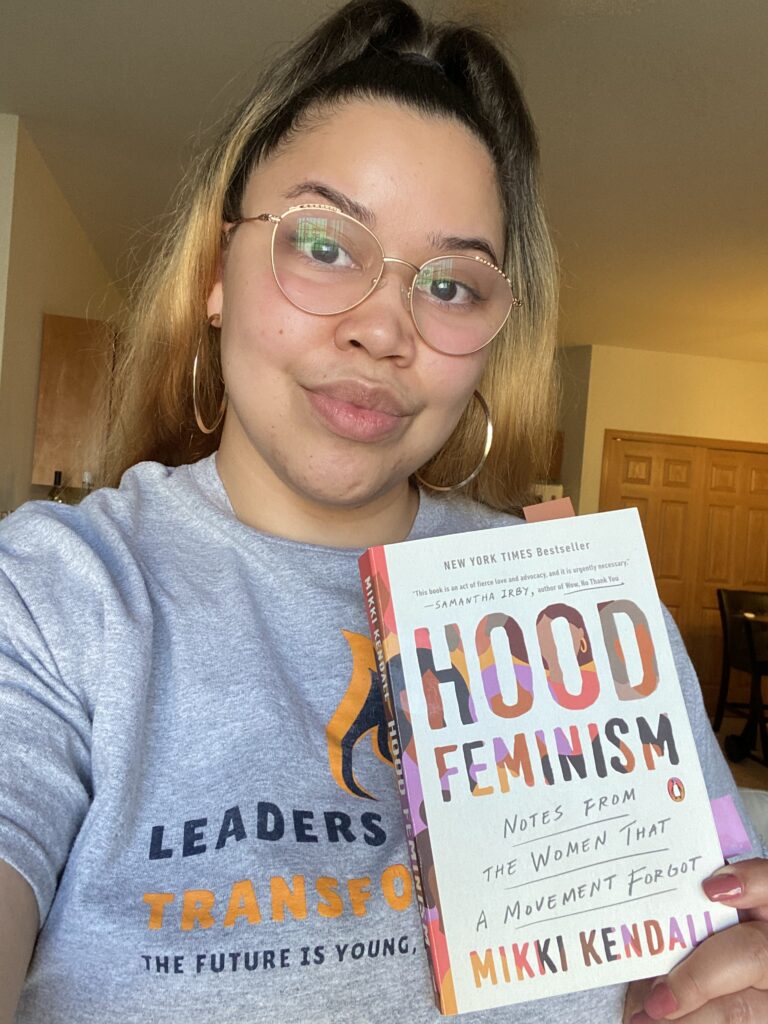
Black Futures Month 2022: Celebrating Black Alliance Organizers
We sat down with four Black youth organizers in our network to hear how their work drives a thriving Black future, the elders in their communities who inspire them, and what they want young people of the future to know about their work today.
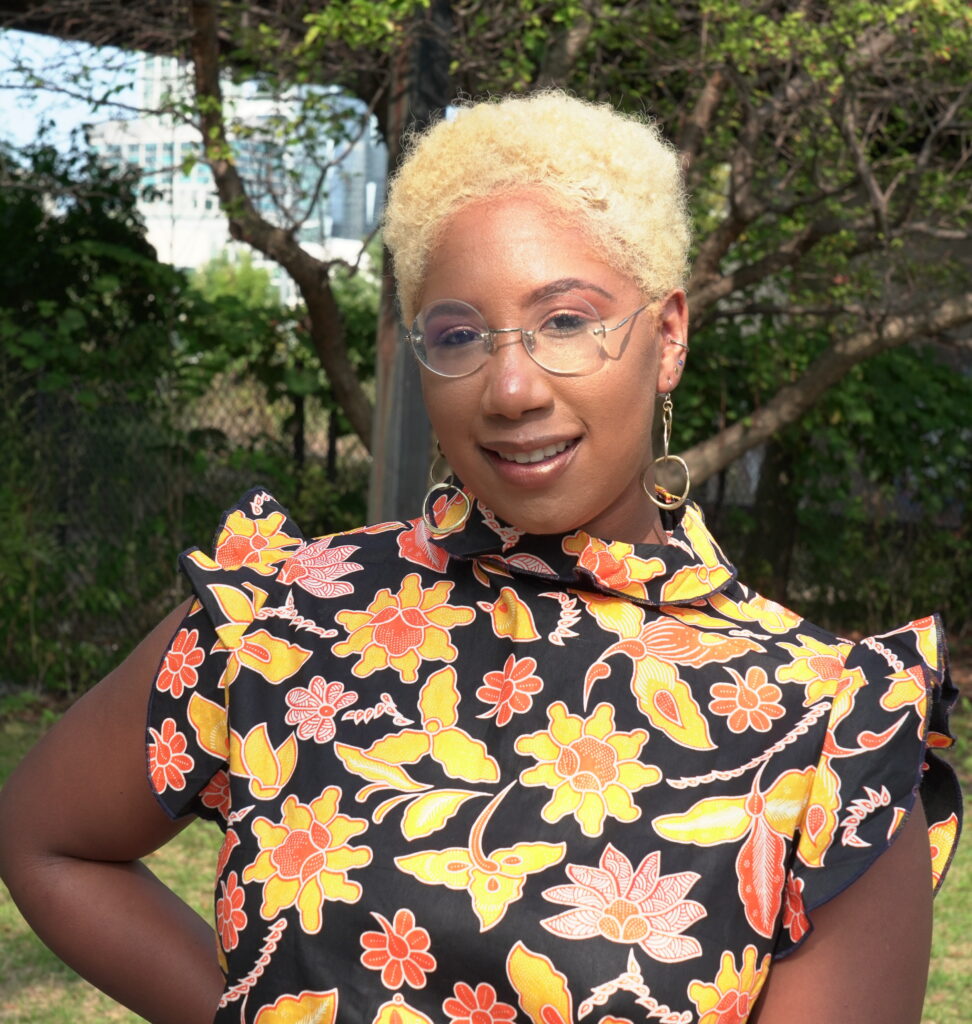
Kiah Sandler
she/her/hers | Development Associate at Chicago Votes | Chicago, IL
How does your organizing work help build a thriving Black Future?
Chicago Votes is a predominantly Black team, we are Black-led, I work on an all Black development team which is really unique and exciting in the nonprofit space. Our goal as an organization is always to increase accessibility to democracy and always to empower the voices of the systemically silenced. In America, that is always the Black community.
Share a story from a Black elder in your community that is Black history to you
When I think about Black History, in relation to my family, I think about traditions. I think about the things my family does that have been passed down to me. I am half Trinidadian and half Venezuelan. I am a first-generation American and the only American of my siblings, so for my family when I think about traditions it’s things that have been done for generations well before this migration to America.
There’s these things called hallaca that we eat at Christmas time. Sometimes they’re called pastels. My favorite job when making those was using this press that my uncle created where you press the cornmeal from a ball to a flat surface and then you put it on a banana leaf and pass it down the line to those who have the jobs to fill it, wrap it, and boil it. It was just one of those things that no one really explained to us, but as we got older we realized it was something really special to our family and to us keeping a bit of culture in a new place.
What story do you want to tell young people in the future about how you made Black history?
I struggle a little bit to think of myself as Black history at this point in my life. I want to empower young people to always understand that living in their truth and existing in happiness is creating Black history. Anything that perpetuates Black joy is a testament to our resiliency. Prioritizing joy and living a life that you can be proud of. I will say that giving back to the Black community, the community that first gave to me and invested in me, has shown me how rewarding community is. I think investing in community, investing in happiness is always the right choice.
I want young people to know they have that power to create Black history within them. They don’t have to be a civil rights leader, you can just be a good person and that’s good enough.
Jessica Saint-Fleur
she/her/they | Lead Organizer and Member Engagement Manager at Engage Miami | Miami, FL
How does your organizing work help build a thriving Black Future?
Being a youth organizer in my position isn’t solely about getting young people registered to vote, but it’s also about empowering young people and getting them to see the power they hold within themselves as well as a community. I think for young Black people like myself, it’s really empowering to see how much power you do really hold and how much power we can actually take back, how we can keep elected officials accountable, how we can go to town hall meetings and make our voices heard.
Share a story from a Black elder in your community that is Black history to you
My grandfather is actually Black History to me because he was able to immigrate from Haiti to Miami by himself. Eventually, after working as a Taxi driver, he was able to get papers for my immediate family members, making me the first American in the family. It’s really exciting to uplift his stories, and also the immigrant stories that make Black history especially here in south Florida.
What story do you want to tell young people in the future about how you made Black history?
I feel like I made Black history around 2019. After college I came back to Miami, Florida really wanting to do something for my community especially around all of the injustices I was seeing. Some of the articles I read said that Little Haiti, the area that I’m from, is the number one gentrified area in the entire United States. So after getting involved with different partner organizations in the area, we delved deeper into what was the cause of gentrification, how could we get more community members involved and how we could get their voices heard. After many months of organizing and advocacy actions, we were able to get a town hall with a large community developer and the community to think through the process of this development and have their voices heard.
I think it was really empowering for my community to get together for something we’d never come together on before. It really got me excited for the future of south Florida and what we can do when we really come together.
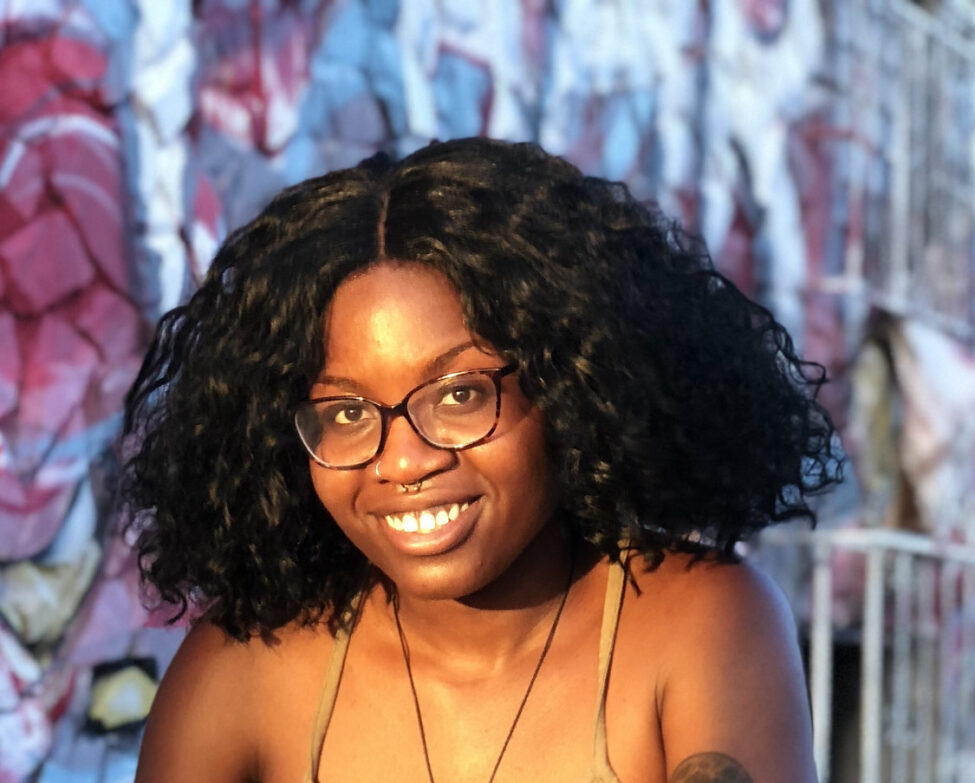
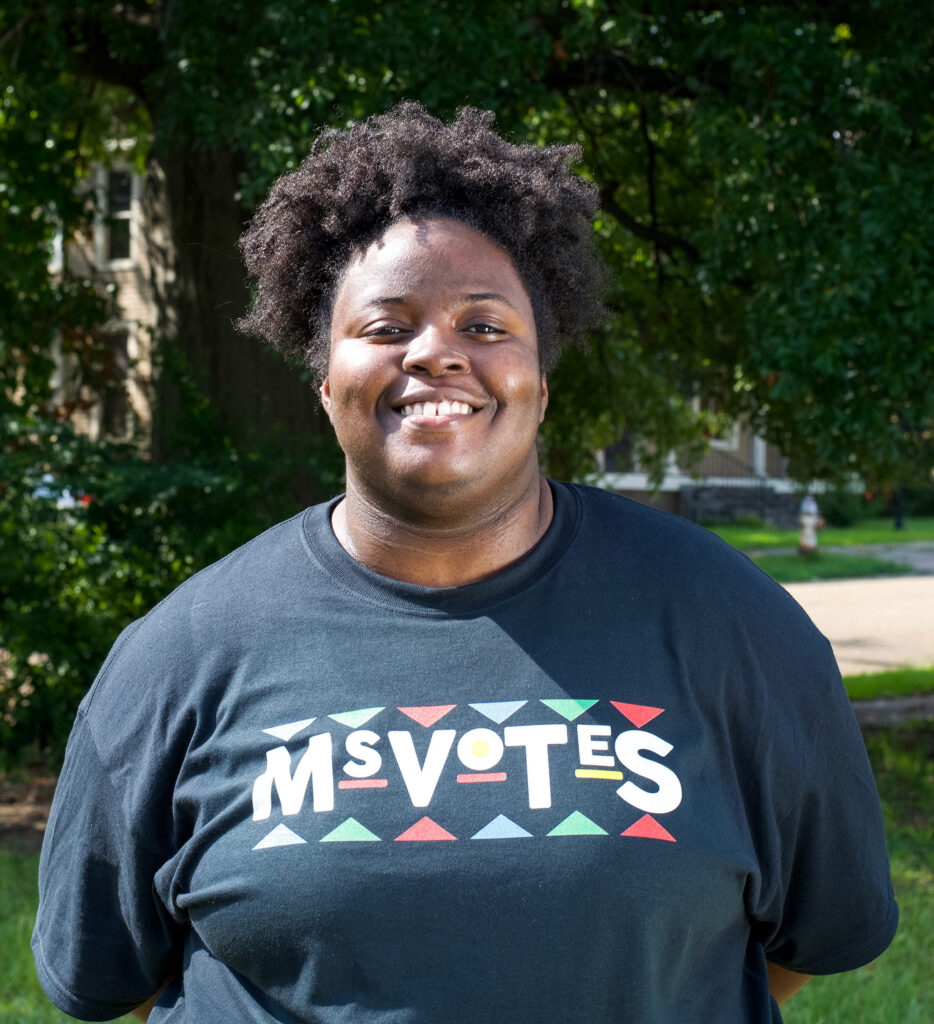
Taylor Turnage
she/her | Youth Civic Engagement Coordinator Colleges & Universities at Mississippi Votes | Jackson, MS
How does your organizing work help build a thriving Black Future?
My role works and helps build Black futures because we work to better civic engagement among youth and work with voter education, voter registration and making sure our youth, especially our Black youth in Mississippi, are informed on the political decisions they are making. And if we do have people who want to pursue politics as a career, we are always there to help and inform them on things they should and want to know to help them improve their chances to become those political leaders in the future.
Share a story from a Black elder in your community that is Black history to you
An elder in my community that I would like to talk about is a man by the name of Akill. This story I want to tell is one Akill told us before our protest which aided in the courage that it took to go through with the full process of having the event. He told us that many decades ago he and his peers took on some of the same battles that we were taking on, and it even happened along the same route of the protest that we took. They had an encounter and a standoff with the KKK members of that time right in front of the capitol building here in the capitol city of Jackson Mississippi. He told us the fear that they had while standing there at that time of unrest and racism.
To know that we are still having the same issues in 2020, and now 2022, and to know that he’s still alive and well and still pushing and fighting for what he believes in gave me the courage to say ‘hey, who am I to let a little fear stop being what he is to me to someone else in the future?’ And hopefully with that encounter and that protest I was able to inspire one mind to stand up for what they believe in and not only stand up for themselves, but stand up for their community.
What story do you want to tell young people in the future about how you made Black history?
I want to tell young people that I influenced Black History in my area with the protest I did in 2020 with a few other young people here in Jackson, MS. It was during the time of the riots and the civil unrest due to the mistreatment of Black people across America in the middle of the pandemic. A few of us got together to do what we thought would be a small protest, and it actually turned out to be a historical event not only for the city of Jackson, but the state as a whole with it being the largest public gathering since Freedom Summer in 1964. We had over 5,000 participants.
The thing that makes that day memorable for me is the courage that it took to get up there in front of over 5,000 of my peers because we knew we had pushback from a lot of other organizations that are still alive and well here in Mississippi. I cannot even begin to speak on the fear that I had during that time, but I believe that fear helped push that courage for me to go up in front of all of those people and fight for something I believed in and fight for something that was right.
Jasmine Baker
she/her/hers | Northwestern Campus Organizer at Leaders Igniting Transformation | Eau Claire, WI
How does your organizing work help build a thriving Black Future?
A lot of the core of my work is specifically working with Black and Brown students on a college or higher education level. I find a lot of my focus is trying to find that passion within students, and bringing that both on an individual and collective level, to make change on their campuses and in their communities. How that’s embedded into ensuring a Black future, is knowing that the future generations know what they are capable of. A lot of what it is, is empowering students to know what their power is, what changes they can make both on campus and in their communities, and what they can do beyond just going to school and focusing on their academics. They’re also focusing on their future and how they can make a future that’s better for Black and Brown youth in general.
Share a story from a Black elder in your community that is Black history to you
The first person that comes to mind when I think of a Black elder, which I don’t know if she wants to be called a Black elder but I obviously see her in a very high regard, is my middle school social studies teacher. She is very much the teacher you will hear about before you get to her class, and a lot of people found her very intimidating. She has so much power with the way she teaches her students and it still sits with me today. A lot of her teachings were rooted in Black history and acknowledging where we come from and how that history paved the way for Black youth and Black leaders in general. She very much is a firecracker for change.
I don’t know if she’s still teaching, but a lot of what she’s taught me is knowing your worth, and knowing that as Black youth, young adults, or elders, every step everywhere we go, and every word we speak, is wroth something. It’s all a part of history and it’s all a part of building the foundation for the next generation. She’s one of the Black elders/leaders I still look up to. I still use her wisdom and her knowledge to this day.
What story do you want to tell young people in the future about how you made Black history?
I think a lot of the time and young people don’t know about organizing and that it’s an actual job, an actual career path, and it may seem small but you can make very large collective change. I started off in college and I didn’t know I was doing organizing work until I graduated and someone put a name to it. A lot of what my friends and I were doing was focusing on bettering the environment for students of color, and obviously there’s still so much more that needs to be done for students of color, but our campus didn’t have a Dean of Diversity so we organized a sit-in and created a list of demands for a Dean of Diversity. We were able to make that a reality! That is just one step in paving the way, but now those students have a reliable source to go to on campus and ask for resources rather than having students do all of the work. Planting that seed on my campus is how I would say I am a part of Black History.
I just hope the future generation knows that a lot of the work you’re doing at first may not seem like there’s anything really happening but every day as the world keeps turning things are happening. Every word you say, every conference room you step in, every meeting you’re having, every rally you’re planning means something. This is something big and you’re not letting that passion die with you. You are building a spark for future generations beyond yourself.
